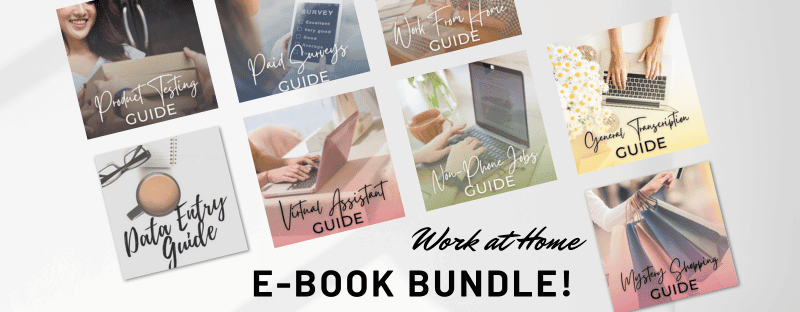If you blog, you may often find yourself wondering what in the heck you are going to blog about today. Trust me, I've been there more times than I could ever count.
Usually this results in me spending an hour racking my brain, trying to come up with something. And yes, this is time wasted, being completely unproductive.
The absolute best way to ensure you always know what you're going to write about is to plan ahead. Late last year I started actively using Google Calendar as kind of an editorial calendar for my blog.
My blog post ideas get posted there, on the specific dates I want them to publish. I love this method because I also get an email the day before the post should go live so I don't forget.
If you don't like Google Calendar, you can of course just use a planner, pen and paper, a smartphone app, or one of many different WordPress plug-ins that act as editorial calendars. But for me, Google Calendar is simple, and it meets my needs perfectly. So that's what I use.
Don't Lose Those Great Ideas!
So scheduling your blog posts efficiently is one thing. But — as per the title of this post — you have to know what you're going to schedule! Below, I'm going to break down a few different ways you can come up with ideas. But first, the most IMPORTANT rule:
As soon as an idea spontaneously pops into your head for a blog post, get it out of your head and onto paper, or your computer, or something, or it will be gone forever!
Most of my blog posts are the result of those spontaneous ideas.
I learned the hard way that taking “mental notes” usually results in me never remembering what that great idea was. So now when things occur to me, I immediately go post them on my Google Calendar for future blog posts.
If the computer isn't handy, you can use a notepad, or your smartphone, or anything at all just so you don't lose your idea!
7 Tips For Finding Blog Post Ideas
1 – Browse Through Your Past Blog Posts
One blog post can almost always lead to another. Go through some of your older posts and dig a little deeper. Most of the things you've written about before could be expanded on, or maybe there's a subject you only scratched the surface of in one post that you could dedicate an entire post to.
2 – Browse Through Other People's Past Blog Posts
It's not a bad idea to browse through blog posts written by other bloggers in your niche to get ideas for your own posts.
Note that this does not mean to copy their content. It just means that you can use their existing content as a source of inspiration for your own.
Just as I mentioned above with browsing through your own older posts, the older posts of other people may contain information you could expand on, or it might trigger ideas for new subjects to write about.
3 – Rework Your Old Posts
Depending on how long you've been blogging, you may have a lot of great content just sitting there in your archives that no one ever reads or sees because it's more than a few years old and never really “took off.”
These are probably on topics you can bring back to life, especially if the information is a little old and not as relevant as it once was. So, just write on those exact same topics again (obviously not word for word), and make it fresh and new for your readers.
4 – Rework Older Posts From Other Bloggers
Again, it goes without saying don't copy their content. But you can always create your own blog post on the exact same topic.
You're not “stealing” their content if you make it into something that is uniquely you, and you'll notice if you browse around the internet that lots of bloggers write about the exact same things.
Remember, their readers are not necessarily also your readers and if their readers enjoyed their blog post on that specific topic, there is a good chance yours will, too. Just do your best to really make it your own. Try to add some information or resources in your post that wasn't included in their post so that if you actually do have some of the same readers, there will still be something new to take away from your post.
5 – Do a Round-Up
I haven't done one of these in a while, and I'd love to make it a regular feature. Every so often, you can compile a list of great posts you've read from other bloggers in your niche.
When you come across a post written by another blogger that you absolutely love or that really resonated with you and you know your readers would appreciate it, share it in your round-up list. 1099 Mom does this on a regular basis, you can see how she approaches it here.
It's a win-win because you're giving your readers great reading material without having to actually provide it yourself, AND you're making the bloggers you've featured very happy! Sometimes they'll even return the favor and share your content with their audience.
6 – Tell a Personal Story
People love to read about the experiences of other people. So, if you have had a recent personal experience that fits with the topic of your blog, share it!
For example, if I had more of a lifestyle/mom blog, I could tell people about how I recently tried to make grilled cheese in the toaster by turning it sideways as shown here, and how the end result is nowhere near that picture-perfect.
Quick tip — if you try it, make sure the toaster is facing toward the wall so you're not scraping cheese up out of the floor. 😉
7 – Ask Your Readers
When all else fails, just ask your readers. They know better than anyone else what they want to read.
You could do so by creating a poll on your Facebook page, or just making a blog post asking for suggestions. If you send out a weekly newsletter, encourage your readers to reply letting you know what they want to read more about.
Sometimes people feel more comfortable replying to an email than they do commenting publicly on a blog or on social media.
And If All Else Fails …
Try the Content Idea Generator tool. It's worth a shot, right?
So I hope this has helped you if you're feeling stumped! Please chime in below if you'd like to share some of your own ideas for coming up with blog posts.
BONUS – Get My Work at Home E-Book Bundle For Just $5 Right Now (8 E-Books Total)
If you are wanting even MORE links to jobs across a ton of categories (virtual assisting, data entry, transcription, and more), you may want to download my work at home e-book bundle.
It includes the following e-books ($1 each if you buy them individually):
- Your Quick Guide to Legit Work From Home Jobs
- Your Quick Guide to Non-Phone Jobs From Home
- Your Quick Guide to Data Entry Jobs From Home
- Your Quick Guide to Working at Home as a General Transcriber
- Your Quick Guide to Working at Home as a Virtual Assistant
- Your Quick Guide to Taking Paid Surveys For Extra Cash
- Your Quick Guide to Getting FREE Products to Test & Keep
- Your Quick Guide to Making Money as a Mystery Shopper
DOWNLOAD IT HERE.
You will get an email with a link to download the PDF files after your purchase.
Thank you!

Anna Thurman is a work at home blogger and mom of two. She has been researching and reviewing remote jobs for over 13 years. Her findings are published weekly here at Real Ways to Earn.



Thanks for the mention! The 1099Mom roundups are so much fun, because it encourages me to get out and explore other topics and blogs when you put them together. It’s the best learning of the week!
Love these ideas! I’m so guilty of not writing down my ideas as soon as I get them. If I don’t, they just evaporate! I love the idea to rework old posts to make them more relevant. I find watching the news and reading also help me come up with more ideas.
We featured this post on 1099Mom.com
Thanks for featuring it, Melissa! Very much appreciated!
Great ideas, Anna! You are the Queen of Blog Ideas.
Thanks, Leisa! 🙂